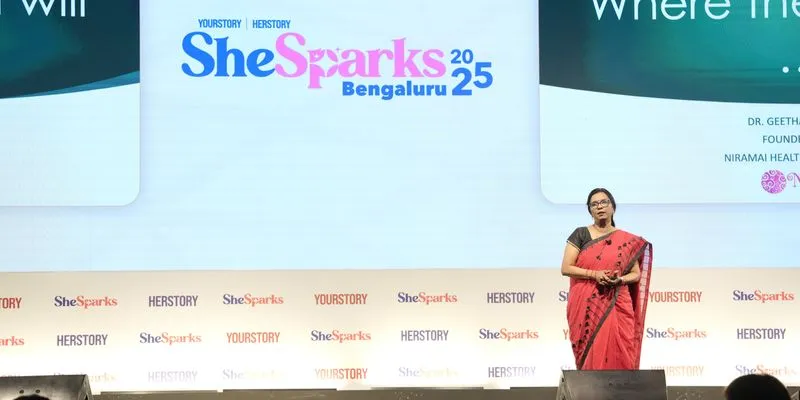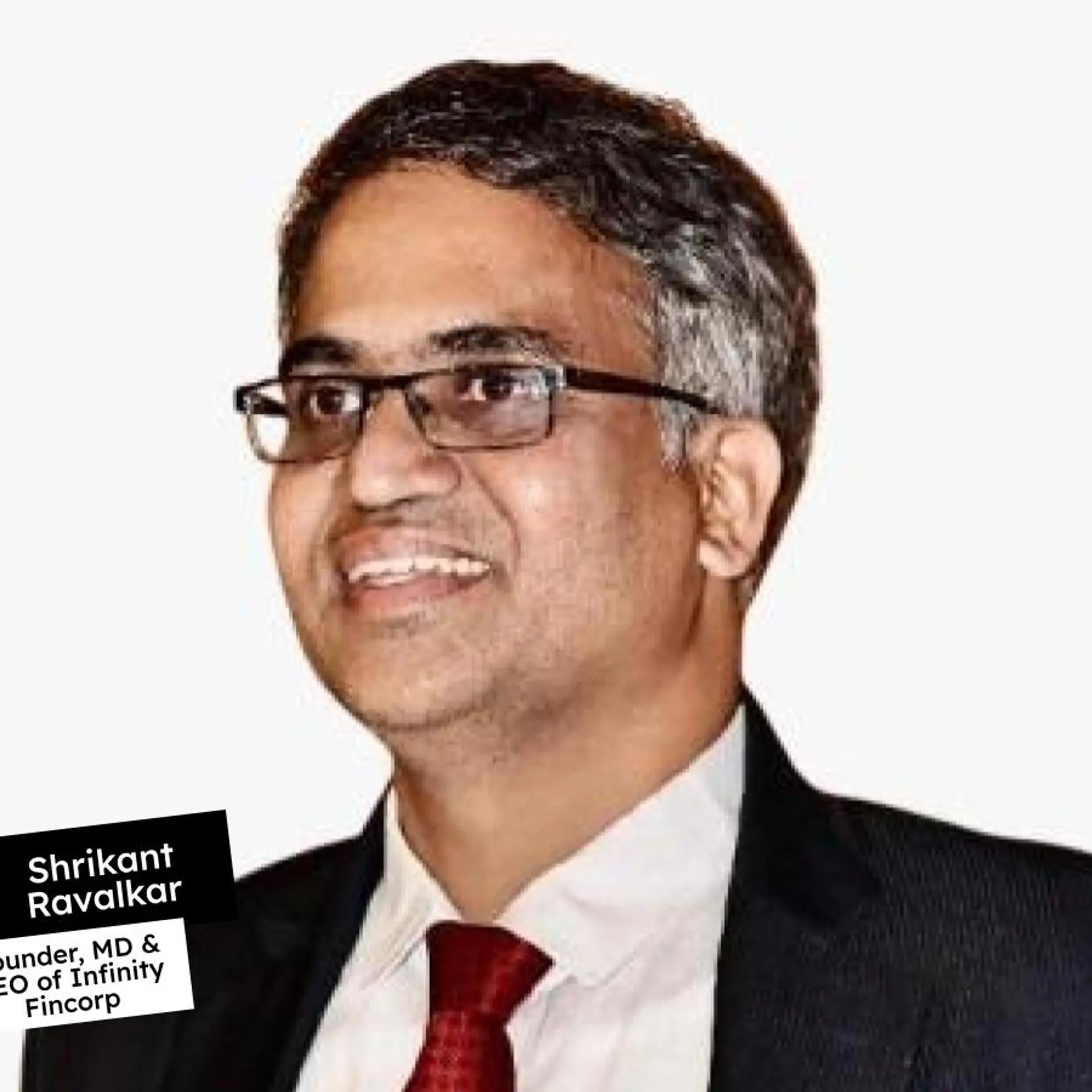Breaking barriers in healthcare: Geetha Manjunath on AI-powered breast cancer detection
At SheSparks, Geetha Manjunath, Founder & CEO of NIRAMAI Health Analytix spoke about Thermalytix, an AI-based medical device for breast cancer screening.
“Where there's a way, there’s passion, and God’s will, things will happen.”
With these words, Geetha Manjunath opened her compelling talk as part of the series, Ladies Who Launch: Women Founders Shaping the Future at SheSparks 2025, YourStory’s flagship event for women in Bengaluru on March 21.

Geetha Manjunath at SheSparks
Manjunath’s talk deeply resonated with the audience as she shared her personal journey, the challenges of the healthcare system, and the potential of technology in saving lives. Manjunath is the Founder & CEO of NIRAMAI Health Analytix, a healthtech company whose mission is to enable early detection of breast cancer in a privacy aware manner.
Before founding NIRAMAI, Manjunath had an extensive career in technology and research. She holds a PhD in Computer Science from the Indian Institute of Science, a management degree from Kellogg School of Management and has decades of experience in artificial intelligence, machine learning, and cloud computing. She previously worked at Hewlett-Packard (HP) Labs, where she led research in data analytics and machine learning, and later served as the Lab Director heading AI research at Xerox.
Reflecting on her personal motivation, Manjunath shared the heartbreaking loss of two close family members to late-stage breast cancer. "Within six months, both my cousins, Bharti and Lakshmi, who were diagnosed at stage four and lost their lives. It was socially, economically, and emotionally shattering," she said. This personal tragedy became the catalyst for her mission to revolutionise breast cancer screening in India with NIRAMAI.
Determined to make a difference, she turned her expertise in artificial intelligence into action. "Breast cancer is completely curable if detected early. Yet, in India, nearly 50% of diagnosed women succumb within two-five years, despite the fact that it is the most curable of all cancers. This is the problem I set out to solve," she explained.
The question was how to stop deaths due to breast cancer. “The main reason is late detection. Many women feel, ‘why should I do a test, why should I go to a doctor? That’s not right because if you wait for a lump to appear, it will already be two or two-and-a-half centimetres which is by definition stage two, three or more. So early detection is absolutely critical so that we can have better treatment efficacy,” she pointed out.
While mammography is the default standard for breast cancer, Manjunath explained that it is recommended only for women above 45 years of age, is expensive, not easily accessible, and doesn’t work on women with dense tissue.
“It’s very critical to have a screening test, for anyone above the age of 20 years,” she said.
At SheSparks, Manjunath spoke about NIRAMAI Thermalytix, an innovative AI-powered breast cancer screening technology that is cost-effective, radiation-free, and non-invasive.
"Our solution is 30% more accurate than traditional methods and costs just 20% of existing screening tests," she stated. Unlike conventional mammography, which requires expensive equipment and skilled technicians, Thermalytix’s thermal imaging method can be deployed in rural and urban areas alike.
“We do this with a “no see, no touch, no pain, no radiation” process—the woman enters the room, sits in front of this device like a camera, which measures the temperature and then AI does the magic and converts it into a breast health report,” she elaborated. This screening method for breast cancer has impacted 2.5 lakh women in 22 countries.
This technology ensures privacy and comfort, making it easier for women to take a crucial step.
Encouraging women to take charge of their health, she urged, "If you have not done a breast health check, please do it. Whether it’s Thermalytix or another method, early detection saves lives."
Manjunath closed her talk with an inspiring call to action: "If a shy girl like me, who was once just a techie, can build a life-saving solution, each one of you can achieve your dreams too. Be open to taking feedback. Most importantly, when you “feel” for the problem, you will find the solutions. When it comes to women’s health, you are not solving for yourself but for a huge population of women who can benefit from it.”
Her words reinforced the message that innovation and determination can drive meaningful change in women’s healthcare.
Edited by Jyoti Narayan







